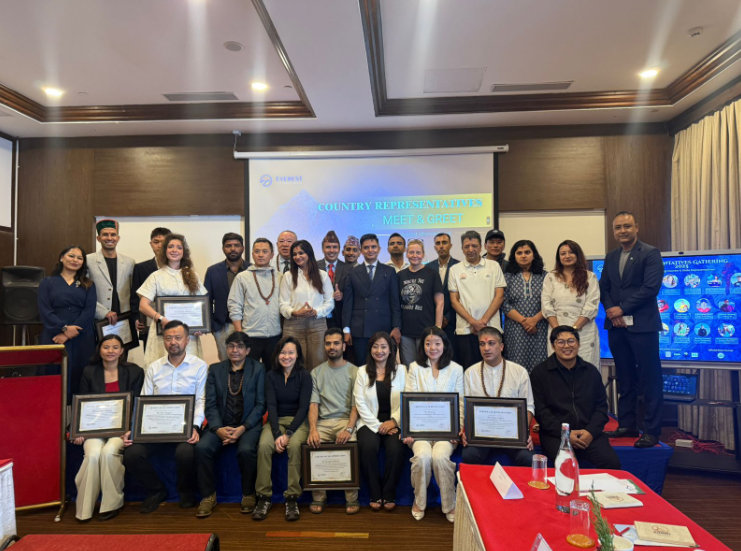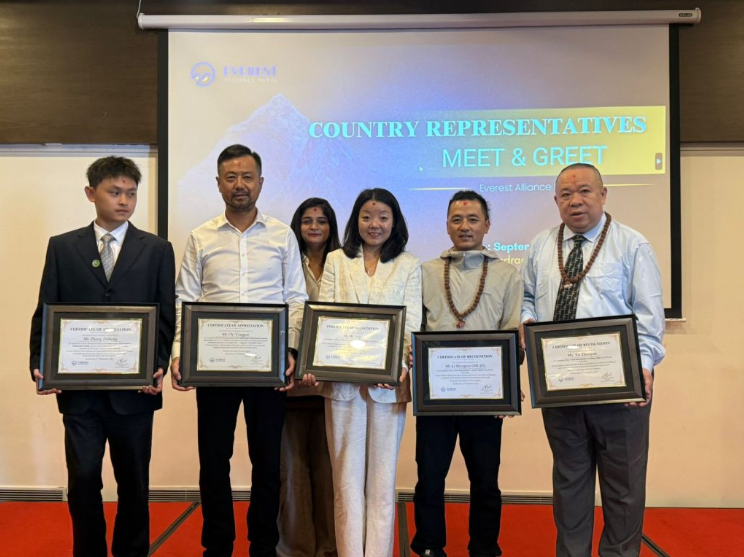Recently, the Everest Alliance Nepal (EAN) successfully held a national representatives meeting in the capital city of Kathmandu. The event brought together mountaineers, government agencies, international organizations, and environmental groups from around the world to engage in in-depth discussions on key issues such as sustainable mountaineering tourism in the Himalayan region, climate change response, and cross-border collaboration.

Image credit: tourisminfonepal.com
The meeting gathered multiple stakeholders, including representatives from the Nepal National Sports Council, Nepal Tourism Board (NTB), International Mountain Tourism Alliance (IMTA), International Union for Conservation of Nature (IUCN), International Centre for Integrated Mountain Development (ICIMOD), World Wide Fund for Nature (WWF), National Trust for Nature Conservation (NTNC), and Zoological Society of London (ZSL).
Tanka Lal Ghising, Secretary of the Nepal National Sports Council, emphasized the importance of promoting sustainable adventure sports and reiterated the commitment to collaboration in this field. Sunil Sharma, Acting Chief Executive Officer of the Nepal Tourism Board, called for the systematic documentation of indigenous knowledge on climate change adaptation among Himalayan communities to support global climate policy formulation.
Zhang Zhiheng, representative of the International Mountain Tourism Alliance, stated that the future of mountain tourism must be built on the dual foundations of sustainable development and climate adaptation, highlighting the critical role of innovation and cooperation. Representatives from several international organizations noted that the Himalayan ecosystem is facing severe threats from climate crises and human activities, underscoring the urgency of collaborative action.
Mountaineers and regional representatives from Russia, India, Nepal, and other countries shared their field experiences and praised EAN for its key role in uniting regional environmental efforts, promoting cultural heritage, and encouraging youth participation.

Image credit: tourisminfonepal.com
Several research and conservation organizations shared specific initiatives, such as ICIMOD’s "Save the Snow" campaign, WWF’s waste management system and renewable energy projects in Sagarmatha National Park, and expressed their eagerness to collaborate with EAN on joint actions.
In his closing remarks, EAN President Sudarshan Nepal thanked all participants and outlined EAN’s future priorities, including addressing waste management in the Himalayas, enhancing safety training for mountain workers, and deepening climate mitigation efforts. He emphasized, "The Himalayas are not only Nepal’s pride but also a gift to the entire world. Only through collective efforts can we preserve this sacred land for future generations."

Image credit: tourisminfonepal.com
The meeting further solidified EAN’s role as a bridge connecting the mountaineering community, environmental organizations, and policymakers. By promoting cross-border collaboration and feasible policies, EAN continues to strengthen Nepal’s leadership in global mountain conservation.
Image and text source: tourisminfonepal.com
Source: tourisminfonepal.com
Editor Ⅰ: Zhang Wenwen
Editor Ⅱ: Bao Gang
Editor Ⅲ: Liu Guosong














